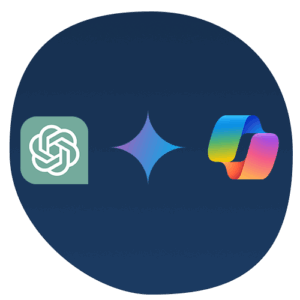Which AI Software understands field sales best?
AI Field Sales Face-Off: ChatGPT, Gemini and Copilot. Who Planned the Best Strategy?
With AI becoming increasingly accessible, the question is no longer if businesses should use it, but which one to choose. We decided to put the most popular triad of platforms—ChatGPT, Gemini, and Copilot—to the test to see how valuable they really are for brands selling out in the field.
Our challenge was simple: could an AI generate a winning strategy for a new field sales team? We stepped into the shoes of a Sales Director for an established probiotic yoghurt brand, successful in retail and now aiming to conquer the world of cafés, up-market gyms, health stores, and independent shops.
Here’s the exact prompt we gave each platform.
Hi [platform name], I’m the Sales Director for an established FMCG brand selling probiotic yoghurts in the UK. We have had success selling into various retail distribution channels, but are now looking to expand into cafés, up-market gyms, health stores, and independent shops. Part of the strategy I’m considering for achieving this is a field sales team, who will also support compliance checks for our retail channels. Please give me a short, concise strategy for this new team to plan and prospect?
Our Prompt
We were intentionally a bit vague. A great strategy requires nuance, and we wanted to test each model’s reasoning and understanding of the field sales industry. We also asked them to keep it concise.
Let’s see how they did.

The Contenders: The AI-Generated Strategies
Here are the unfiltered responses from each platform.
Field Sales Strategy for New Channel Expansion
1. Team Structure & Roles
- Territory-Based Reps: Assign reps by region with clear targets.
- Dual Function: Sales prospecting + compliance auditing in existing retail.
2. Targeting & Prospecting
- Segment Lists: Build databases for cafés, gyms, health stores, and independents using tools like Yelp, Google Maps, and local trade directories.
- Ideal Account Profile (IAP): Focus on businesses that:
- Stock health-focused/FMCG products
- Highlight wellness or sustainability
- Have high foot traffic or premium positioning
3. Sales Toolkit
- Pitch Materials: Clear brand story, health benefits, sampling support, proven sales data from retail.
- Intro Offer: Limited-time deal (e.g., free first case or marketing kit).
- POS Materials: Fridge stickers, counter displays, influencer co-promotion options.
4. Field Workflow
- Daily Route Planning: Use CRM (e.g., Salesforce Maps, HubSpot) to plan and log visits.
- First Visit Goal: Secure a trial listing or meeting with decision-maker.
- Follow-Up Cadence: 3-visit rule (Intro → Sampling → Close).
5. Compliance Checks
Use the same reps to:
- Check product placement, pricing, and freshness in current retailers.
- Report via a simple app (e.g., Repsly, GoSpotCheck).
6. KPIs
- New accounts opened/month
- Compliance issues resolved/week
- Repeat orders from new channels
- Account churn rate
7. Support & Training
- Product education + objection handling
- Route management and CRM use
- Cross-channel insight sharing sessions
Field Sales Strategy: New Channel Expansion
1. Define Target Accounts & Prioritization:
- Cafés: Focus on independent, health-focused, or specialty coffee shops with a strong local following.
- Up-market Gyms: Identify gyms with smoothie bars, health cafes, or a wellness-oriented member base.
- Health Stores: Target independent health food shops and supplement stores, particularly those emphasizing natural or gut-health products.
- Independent Shops: Broaden this to include delis, farm shops, and other local businesses that align with a premium, health-conscious offering.
- Prioritization: Rank targets by potential volume, brand fit, and ease of entry (e.g., existing relationships, geographic clusters).
2. Territory Planning & Management:
- Geographic Clustering: Assign territories based on logical geographic clusters to minimize travel time and maximize visits.
- Account Segmentation: Within each territory, segment accounts by size and potential to tailor visit frequency and approach.
- CRM System: Implement a robust CRM (e.g., Salesforce, HubSpot) to manage leads, track interactions, schedule visits, and monitor progress.
3. Prospecting & Outreach:
Research & Lead Generation:
- Online: Use Google Maps, social media (Instagram, Facebook), local business directories, and industry-specific websites to identify potential accounts.
- Referrals: Leverage existing retail relationships for introductions to independent businesses.
- Walk-ins/Cold Calls: Direct visits or calls to introduce the brand and assess interest.
- Value Proposition: Develop a tailored value proposition for each channel, highlighting benefits like:
- Cafés/Gyms: Increased beverage/snack sales, catering to health-conscious customers, unique offering.
- Health Stores/Independent Shops: High-quality, in-demand probiotic product, strong brand reputation, competitive margins.
- Initial Approach: Focus on booking short introductory meetings to showcase product samples, discuss partnership opportunities, and understand their needs.
4. Sales Process & Support:
- Discovery: Train the team to ask open-ended questions to understand each prospect’s current offerings, customer base, and challenges.
- Solution Selling: Position your probiotic yoghurts as a solution that meets their customer demands and business goals.
- Sales Collateral: Provide comprehensive sales kits including product information, case studies (from existing retail success), pricing, and order forms.
- Compliance Checks: Integrate compliance checks for existing retail channels into field visits, ensuring efficient use of time and maintaining brand standards.
5. Training & KPIs:
- Product & Brand Training: Ensure in-depth knowledge of your products, their benefits, and brand story.
- Sales Skills Training: Focus on prospecting, objection handling, negotiation, and relationship building.
- Key Performance Indicators (KPIs):
- Number of new accounts opened per month/quarter.
- Average order value per new account.
- Conversion rate from lead to new account.
- Number of compliance checks completed.
- Customer retention rate for new channels.
This strategy aims to equip your field sales team with a clear roadmap for successful expansion into these new, high-value channels while efficiently supporting your existing retail network.
Hi [my name] — I love the sound of this next phase for your brand. Here’s a crisp field sales strategy tailored to your expansion:
1. Define Ideal Outlet Profiles: Segment targets by outlet type (e.g. boutique cafés, premium gyms) and location. Prioritise based on footfall, health-conscious clientele, and alignment with your brand.
2. Build Target Lists: Use location intelligence tools, local directories, and gym/health food partnerships to compile a list of prospects. Leverage social listening to find trend-forward independents.
3. Equip the Team: Arm your team with compelling pitch decks, portable POS materials, samples, and objection-handling scripts. Reinforce with a simple CRM to track activity and feedback.
4. Strategic Route Planning: Cluster visits by geography and category to maximise efficiency. Allocate routine retail compliance visits alongside new prospecting.
5. Local Activation & Visibility: Encourage on-the-ground visibility—pop-up tastings, local event presence, and co-branding with venue partners to build grassroots momentum.
6. Feedback Loop: Set up a weekly review rhythm to share insights, iterate pitch messaging, and celebrate wins. Use data to refine prospecting focus.
This kind of agile field force can do wonders for brand visibility and customer intimacy. Shall we sketch a team structure or ideal pitch next?
Test Conditions:
Test conducted on 25/06/2025
Free versions of respective software were used.
ChatGPT version: GPT-4; Gemini version: 2.5 Flash
The Ringside Analysis: Who Understood Field Sales?
All three AIs provided a solid foundation. But the devil is in the details, and some platforms demonstrated a much deeper understanding of the nuances of field sales.
Round 1: Depth and Detail
Right away, Gemini pulled ahead with the most detailed response. It didn’t just suggest targeting “gyms”; it specified “gyms with smoothie bars, health cafes, or a wellness-oriented member base.” This level of detail shows an understanding of the Ideal Customer Profile (ICP) that is crucial for effective prospecting. Reps armed with this insight can immediately focus their efforts on high-potential locations.
Copilot also offered valuable considerations like “footfall” and “health-conscious clientele,” which are key data points. ChatGPT was more generic, simply segmenting by venue type.
When it came to KPIs, both Gemini and ChatGPT listed solid metrics. However, Gemini’s suggestion to track “Conversion rate from lead to new account” shows a focus on the entire sales funnel, while ChatGPT’s “Compliance issues resolved” astutely captures the reps’ role in protecting brand reputation, not just checking boxes.
Winner of the Round: Gemini

Round 2: Tools of the Trade vs. Field Realities
This is where the AIs revealed their generalist nature. Both Gemini and ChatGPT suggested implementing a “robust CRM (e.g., Salesforce, HubSpot).” While these are phenomenal platforms for marketing and inside sales, they aren’t built for the dynamic, on-the-go reality of field sales. Reps need mobile-first tools designed for route planning, on-site data capture, and quick ordering—not a desktop-centric CRM.
To toot our own horn for a moment, this is exactly why Bowimi exists: to consolidate the tools a field rep needs into one mobile-friendly platform that feeds clean data back to managers. We’ll forgive the AI giants for overlooking us; they’re still learning.
ChatGPT also made an error by suggesting reps use a CRM and a separate app for compliance checks. This creates data silos and invites human error. The goal should always be a single source of truth, where all field activity is managed in one place for end-to-end insights.
Winner of the Round: Copilot

Round 3: The Human Element and Strategy
Field sales is about more than just data; it’s about process and people. This is where Copilot truly shined with its suggestion to create a “Feedback Loop.” This concept—a weekly rhythm to share insights, iterate messaging, and refine prospecting—is the engine of any successful sales team. It turns individual actions into collective intelligence.
Gemini also impressed by focusing on coaching, suggesting reps be trained in “solution selling” and asking open-ended questions. This demonstrates an understanding that a sales pitch isn’t a monologue; it’s a conversation.
Winner of the Round: A tie between Copilot and Gemini.

The Verdict: And the AI That Understands Field Sales Best Is…
After weighing the responses, one platform stood out. If we were to hand out the award, it would go to…
The winner is...
Gemini
Copilot earns a strong second place. It kept its response concise as requested and was the only AI to highlight the all-important “feedback loop,” a cornerstone of agile sales strategy.
ChatGPT, while competent, offered a more surface-level plan. Its advice to use separate tools for CRM and compliance reporting was a fundamental miss, creating unnecessary complexity and risk for a field team.
Ultimately, AI platforms are powerful tools for ideation and planning. They can provide an excellent first draft, but field sales is hard work that depends on people. A successful strategy requires combining that AI-powered blueprint with deep industry knowledge and the right tools designed for the people on the ground.
Interested in how AI can supercharge your field sales execution?
The Bowimi platform uses a powerful Google Maps integration to help you build and manage your prospect database. With our premium AI Prospecting feature, you get a daily list of 500 new locations, scored on their likelihood to become your next customer based on your team’s real-world success.
Book your Bowimi demo
Want to follow these AI strategies and start seeing more from your field sales team? Do it all in Bowimi. Data consolidation and insights, route planning, prospecting, tracking orders and rate of sale. Quintessential field sales tools, all in one platform. Book your quick 30-minute demo to see how Bowimi works through the calendar below.
